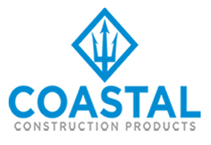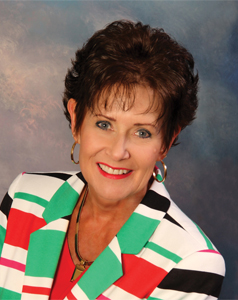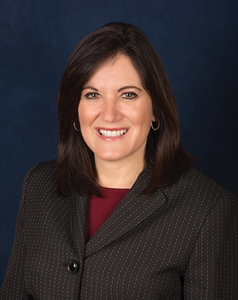
FCAP Community
Published May 2019
Florida Community Association Professionals’ (FCAP) training is offered on two levels. Level one consists of courses meeting Florida’s continuing education requirements for CAMs, and level two is the Florida Advanced CAM Studies (FACS) course. For further information about the more than 50 online continuing education classes available or to pursue the Certified Florida Community Association Manager (CFCAM) designation, please visit www.fcapgroup.com/membership/education-training/.
 James Ebaugh Attains CFCAM Designation from FCAP
James Ebaugh Attains CFCAM Designation from FCAP
On November 14, 2018, James Ebaugh of Naples, Florida, was issued his license by the Department of Business and Professional Regulation to practice community association management. On November 15 he joined FCAP, and on November 19, he began taking the CFCAM (Certified Florida Community Association Manager) educational program. On December 28, Jim completed the educational requirements to pass the course, and on January 24, 2019, he was presented with his Certificate of Completion by Matt Nolton, the CEO of Forge Engineering, an FCAP Education Partner.
To say that James Ebaugh is an overachiever may be an understatement. Along with serving in the United States Army, his resume includes holding a position as Director of Finance and Chief Financial Officer at several south Florida hospitals. He has also served as an adjunct professor, teaching accounting and business management courses.
He currently serves Island Walk Homeowners Association in Naples as treasurer and has served as treasurer at several HOAs in the Miami area. He is employed with Larson Educational Services in Naples, Florida, where he teaches several continuing education courses for CAMs. FCAP had the opportunity to ask James several questions, and the following are a few of his responses.
What issues are community associations facing in 2019?
The major issues facing both community association managers and board members are cash flow and reserves. It is important to recognize that cash flow is the life blood of any association. The inflow of cash and owner’s assessments must be at a level to fund the daily normal operating expenses along with funding adequate reserves. An association must have adequate reserves to cover major project expenses or face your community with that dreaded phrase, “special assessment.”
What led you to pursue the CFCAM designation?
After reading through the syllabus, I realized that these topics were the issues I was confronting each day. I felt like this program would help me to communicate with our board and CAM at the highest levels.
What do you enjoy doing in your free time?
During my free time, I enjoy reading, especially history; hitting golf balls; working out at our fitness center; and sometimes just doing nothing.
Because You Asked
By Betsy Barbieux, CAM, CFCAM
Betsy,
Can you direct me to the statute that speaks about the requirements of new board members? I think it states that a new board member has 90 days to read the condominium documents. Thanks for all your help!
-Jackie
Jackie,
It is Section 718.112(d)(4)(b):
b. Within 90 days after being elected or appointed to the board of an association of a residential condominium, each newly elected or appointed director shall certify in writing to the secretary of the association that he or she has read the association’s declaration of condominium, articles of incorporation, bylaws, and current written policies; that he or she will work to uphold such documents and policies to the best of his or her ability; and that he or she will faithfully discharge his or her fiduciary responsibility to the association’s members. In lieu of this written certification, within 90 days after being elected or appointed to the board, the newly elected or appointed director may submit a certificate of having satisfactorily completed the educational curriculum administered by a division-approved condominium education provider within 1 year before or 90 days after the date of election or appointment. The written certification or educational certificate is valid and does not have to be resubmitted as long as the director serves on the board without interruption. A director of an association of a residential condominium who fails to timely file the written certification or educational certificate is suspended from service on the board until he or she complies with this sub-subparagraph. The board may temporarily fill the vacancy during the period of suspension. The secretary shall cause the association to retain a director’s written certification or educational certificate for inspection by the members for 5 years after a director’s election or the duration of the director’s uninterrupted tenure, whichever is longer. Failure to have such written certification or educational certificate on file does not affect the validity of any board action.
We do offer the board certification course in Bradenton, Leesburg, St. Augustine, and by special engagement!
-Betsy
Betsy,
I have received my second ever estoppel certificate request, and I know I have 10 days to complete and return it, but my board says this request is not a normal procedure. Is it required to produce an estoppel certificate upon every sale?
Also, I have read there needs to be information on the website that states where estoppel requests are to be sent. Is this a requirement or just a suggestion? Thank you!
-Melody
Melody,
When there is a sale, the closing agent should request estoppel information. The association must provide it within 10 business days. There is no option but to do so.
If the closing is just between two people, and they don’t have a realtor or closing agent or attorney, you won’t get an estoppel request. But, buyer beware! A buyer assumes all unpaid sums due.
The statute does require (not a suggestion) that the address for requesting estoppels be on the association website, but the statute only requires websites for condominiums with more than 150 units. So, it is ambiguous. My little condominium association does not have a website.
-Betsy
Betsy,
Here’s my question: What percentage of owners is needed to amend a bylaw?
-Jason
Jason,
The answer to your question will be found in your bylaws under the paragraph titled “Amendment.” Should you not find such a paragraph in your bylaws, the statute says the vote required is 2/3 of the entire membership. You can read the specific statutory requirements for condominiums at Section 718.112, for cooperatives at Section 719.106, or for homeowners associations at Section 720.306.
-Betsy
Betsy,
A question has arisen regarding the necessity for our board to address a problem of some urgency. The issue requiring action was addressed at our last board meeting, and we unanimously agreed to fix the problem, although no motion was made or voted upon; and the specific remedy, although discussed, was not finally determined. Our CAM was asked to work out an agreement with the vendor involved and has a compromised agreement for the board to consider.
Do we need either a vote or an emergency board meeting to deliberate whether to accept the agreement worked out by the CAM to fix the situation even though we already verbally agreed to do so at the duly noticed prior board meeting? Any advice you can offer is much appreciated. Thank you.
-Eric
Eric,
I would say you did not “unanimously” agree to address the issue if there was no motion/vote noted in the minutes. Assuming the issue was noted in the minutes, the directive to your CAM to negotiate with the parties also should have been specifically written into the minutes. Decisions or directives should always be written into the minutes. Otherwise, it didn’t happen.
You should have a board meeting to discuss the proposal from the vendor and formalize your decision (motion, second, vote, minutes). This meeting should have a 48-hour posted notice and agenda with the “issue” specifically on the agenda. Your meeting may be in person or via speaker telephone. Failing to take affirmative steps to correct the situation could result in board/association liability.
P.S.—As a best practice, always be sure to have a motion, notation, or directive in the minutes for each agenda item. Doing so will indicate each agenda item was addressed.
P.P.S.—A directive written into the minutes could read like this: The issue with the pipes and screens was discussed. It was agreed that the CAM would contact the vendor to work out an agreement to correct the issue and report back at the next board meeting.
-Betsy
CAM to CAM
Marcy L. Kravit, CMCA, AMS, PCAM, CFCAM
AKAM ON-SITE Managing Director
FCAP Education and Training Coordinator
Editor’s Note: This will be a two-part article with the second part to be published in the June issue.
Question:
What tips do you have in dealing with negative people in my community?
Answer:
Tips on How to Deal with Toxic Individuals Who Try to Drain the Life out of You
Energy vampires, naysayers, gadflies, egomaniacs, power hungry individuals, the know-it-all’s, whatever you want to call them, every community has at least one. These individuals can drain you, interrupt you, and disrupt your focus and productivity.
As you are aware, in this industry, it is not easy to serve the needs of all residents. If you let it, negativity can suck you dry of the good you are working hard to bring to the community. In the world of internet and email, it is easy to fall victim to those seeking negative attention and the antagonistic naysayers. Behind a keyboard, it is easy for one to attack. The challenge in dealing with negative people is that interactions with them tend to be draining. No matter what you say, they always have a negative response and opinion to your positive response. When something positive happens, they are quick to twist things or point out the black lining to the situation. When they have an issue, they prefer to play the victim and complain, rather than being open to listen objectively to your solution or working out a solution.
In my previous article in the March issue of FLCAJ, I drafted a Board Code of Conduct and outlined how others should be held accountable for their behavior. These written guidelines can form the framework for your association to work together in harmony. Your association rules and regulations should also establish how members should act and provide a no tolerance policy for bullying and harassment.
Try these tips in dealing with negative individuals who will try to drain the life out of you:
Be Honest and Communicate
Energy vampires are so caught up in their own agenda that they neglect to realize the effect they’re having on everyone around them. Don’t be afraid to remind them how their words and actions are depleting you (and others) from pursuing your focus and your harmonious being. No one can take away your peace unless you let them. Sometimes, we have to work with people who are toxic. Do not let them influence you, your self-worth, and professionalism. Be kind and mindful in your approach.
Do the mental work for positive change. Always remain calm; do not go on the defensive. Try saying something like, “let me understand…what is it specifically that you want… then restate what they are saying and go on to say, ‘I will look into this,’ or ask the question, ‘Let me understand, you wish for me to do this and want this?’” If they continue to become belligerent, go on to say, “Please understand that I understand you want this, but I can only handle so many of these conversations because they make me feel you are not willing to work with me, listen to what I have to say, or provide a solution. What can I do to move forward in assisting you?”
Do not tolerate harassment or anyone raising their voice. Unfortunately, I have ended phone conversations by saying, “Please, if you do not lower your voice, I will have to hang up, and I am here to assist you!” If they continue to talk over you, then say, “This is not a conversation, and when you are ready to speak to me in a civil manner, I will be happy to continue our discussion” and then hang up. They may end up appreciating your calm tone and firm stand and come back to apologize.
Take Care of Yourself
Sometimes it pays to be selfish, especially in this business where we are serving the needs of people in creating a lifestyle and maintaining their homes. Take the time to tune into the radio and listen to music that makes you feel good or listen to audio books on your drive to and from work. Read books or watch positive shows, movies, or videos that make you feel good.
Maybe take a bubble bath at night or a swim to rid yourself of the toxic feelings you’ve been exposed to in your day! Wake up with some stretching, exercise, a walk on the beach, breathing exercises, and meditating 10–15 minutes to reconnect with your inner self. It can do wonders for the mind, body, and soul.
Make sure you plan or take your time off to be with friends and family. It is important to feel recharged and refreshed to be prepared and ready to tackle any new challenges. A cruise or a beach vacation is a good way to pamper yourself. There is something that is so tranquil and euphoric about the ocean and catching some sunshine!
Give Those Toxic Negative Individuals Sound Facts, Listen, and Focus on the Positives
Remember the saying, “Misery loves company”? Those association members who focus on the negative are known for preying on others to turn them against the board and management. Give them the facts and draft a newsletter highlighting the accomplishments and individuals who have made contributions to the community. Provide motivation and enthusiasm, focusing on the positives in recognizing others, and attempt to pull them out of their bad habits. Kill them with kindness and take the time to listen to them.
Spread Good Karma and Ask Questions
Simple affirmations, a smile, and an encouraging gesture can work wonders in changing the attitude of your energy vampires. Currently, it is an unfortunate reality that a political climate of divisiveness exists across our country. As professional managers, we are accustomed to handling a steady stream of complaints, requests, and grievances. It is our job to address them; however, it is not acceptable or appropriate for us to be mistreated or verbally abused.
Ask the negative individual the following: “Have I ever talked to you that way? Have I done anything to upset you? How can I help you? Why are you so negative? Why don’t you volunteer on a committee to make a difference?”
FCAP Member’s Spotlight
 Asphalt Restoration Technology Systems
Asphalt Restoration Technology Systems
Asphalt Restoration Technology Systems Inc. (AR Tech) is led by Connie Lorenz, also known as the “Asphaltchick,” and provides education and consultation services on proper asphalt maintenance. As a multi-year recipient of the Florida Reader’s Choice Award and Pulse of the City Awards, and one the of Top 50 Asphalt Contractors in the country four years and running through Pavement Maintenance and Reconstruction Magazine, we are the team to turn to!
We provide a no-cost, property specific, detailed evaluation, with our proposals and offer board presentations to explain the different options available for pavement maintenance today.
For more information on Asphalt Restoration Technology Systems, call (800) 254-4732 or visit www.asphaltnews.com.
 Coastal Construction Products
Coastal Construction Products
Coastal Construction Products is one of the largest independent distributors of caulking and sealants, waterproofing, concrete repair, and fire protection products in the US. With locations across Florida, including our newest office in Sarasota, Coastal has the inventory and technical expertise to support your projects and keep you on track and on budget.
For more information on Coastal Construction Products, visit CoastalOne.com or call (855) 347-0866.
 Garfinkel Whynot
Garfinkel Whynot
Garfinkel Whynot represents clients for property damage/construction problems on full contingency. In addition to providing board certified community association general representation for HOAs, condominiums, and townhomes, we’ve recovered hundreds of millions to make repairs from bad contractors, poor workmanship, and storms.
We will provide your association complimentary peer reviews on any litigation or other matters. We’d love to earn your trust and your business. We don’t represent developers, insurance companies, or others whose financial interests are adverse to you.
Invite us to visit your board and provide free engineering and accounting reviews—your association will not pay a penny!
For more information on Garfinkel Whynot, call (866) Love-GW-Law (866-568-3495) and visit www.LoveGWLaw.com—Awarded the Highest Rating for Ethics and Legal Ability for more than a decade!





